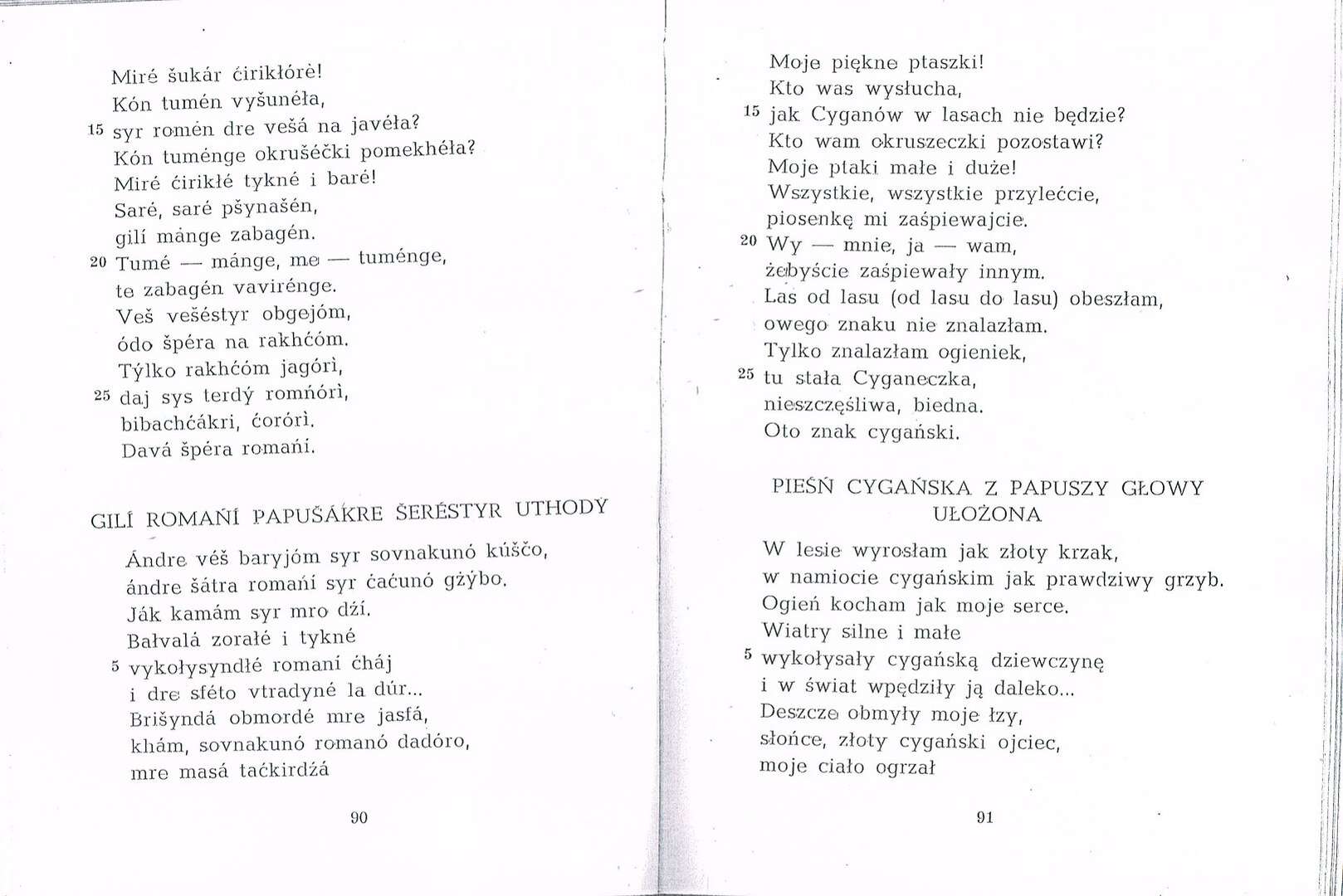Bronisława »Papusza« Wajs: »Gilí romańi Papušakre śeréstyr uthody« / »Pieśń cygańska z Papuszy głowy ułożona« in Romanes wih literal Polish translation:
Papusza’s poem ‘Gilí romańi Papušakre śeréstyr uthody’ [Gypsy Song Made Up in Papusza’s Head] dates from the turn of the year 1950/51, after she moved from West Pomerania to the Gorzów Wielkopolski area. This was Papusza’s literary debut, and it not only attracted the attention of Polish literary circles but also earned her a scholarship from the Ministry of Culture and Art. Presumably encouraged by her translator and ‘discoverer’, Jerzy Ficowski, she dedicated the poem to Julian Tuwim – the renowned Polish poet who would later help further her career. The enthusiastic reviews pointed out the folkloristic origin of her poems, their innovative magical atmosphere and the authenticity of her unostentatious poetic depictions.
Like the majority of Papusza’s poems, ‘Gypsy Song’ is autobiographical in nature and is about her past life in the wagon convoys of the group. The longing for the itinerant life is intertwined with the longing for youth and, above all, for the closeness to nature, which fitted in harmoniously with the life of the travellers. As is often the case in her work, the poem ends with a bitter reflection of the alienated lyrical ‘I’. The poem exhibits the song-like quality of Papusza’s work, which demonstrates how she is anchored in the oral tradition (e.g. the anaphora) and which is shown to advantage in Jerzy Ficowski’s translation.
Pieśni Papuszy [Papusza’s Songs] (1956) are available in three linguistic variants. The original texts in Romani were translated by Jerzy Ficowski into a literary Polish. These translations were the basis for the reception and aesthetic appraisal of Papusza’s works. Furthermore, as editor of the book, Ficowski juxtaposed the Romani originals with literal Polish translations to offer readers an insight into Romani and allow them to follow the poetic changes that were made in the literary translation into Polish.
Source
Wajs, Bronisława [Papusza]. 1956. Pieśni Papuszy. Papušakre gila. Wiersze w języku cygańskim. Przełożył, opracował, wstępem i objaśnieniami opatrzył Jerzy Ficowski. Warsaw, Wrocław: Wydawnictwo im. Ossolińskich, pp. 90–97 [in Romani with literal Polish translation].




